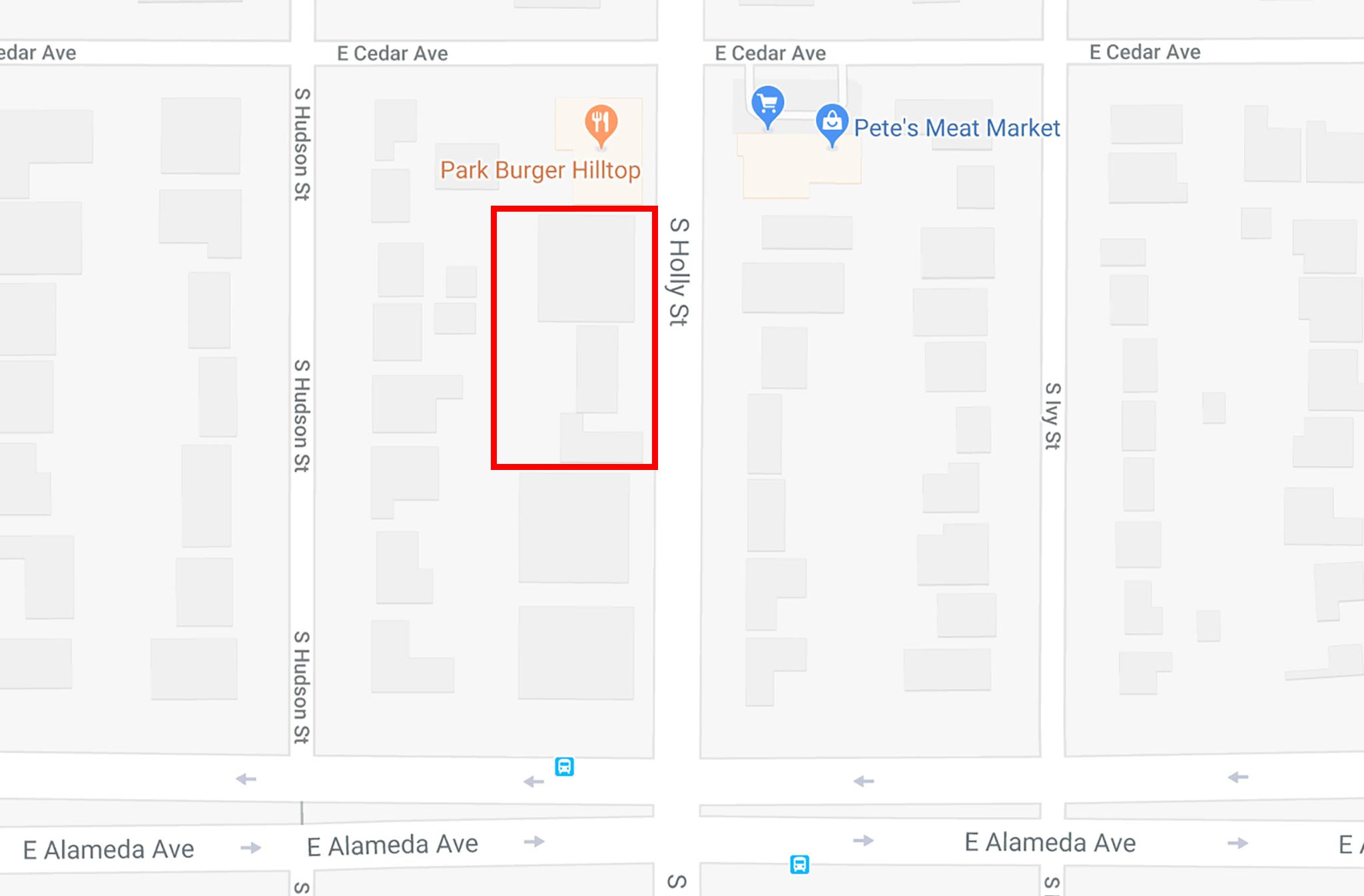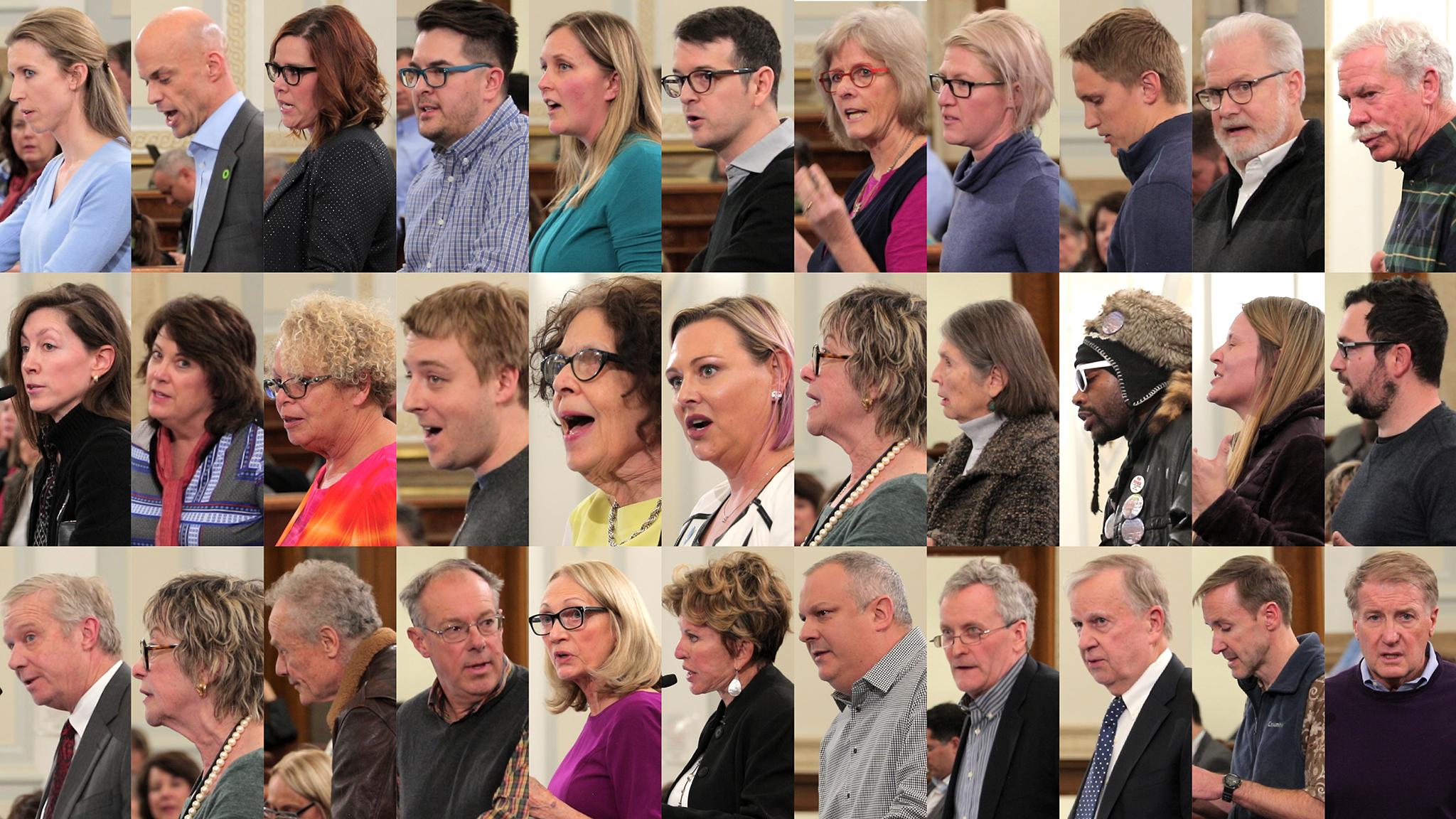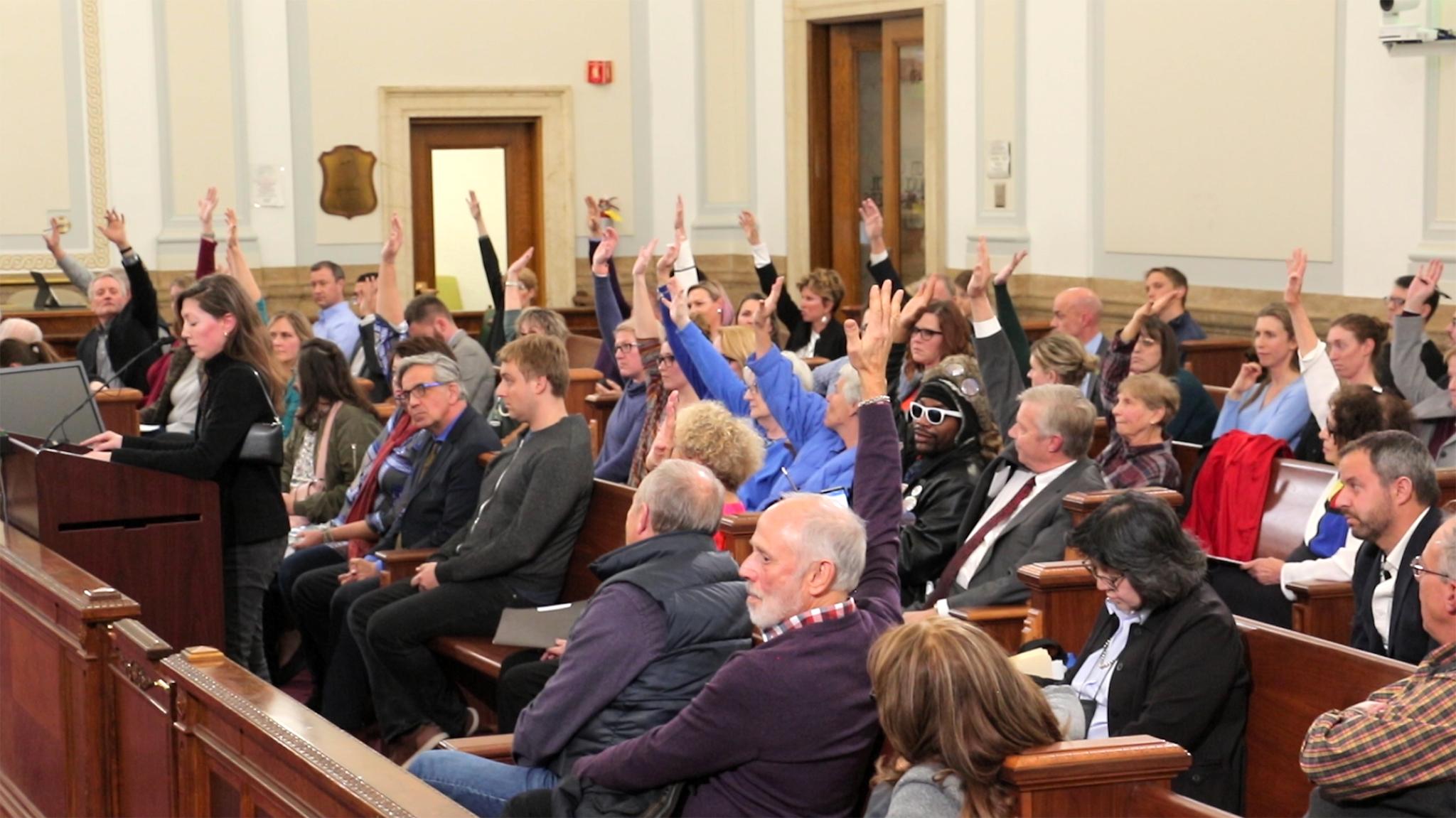The Denver City Council on Monday handed a victory to opponents of change in their Hilltop neighborhood and a defeat to residents hoping to pool their seven properties and redevelop them into 23 homes.
Council members Rafael Espinoza, Kevin Flynn, Paul Kashmann, Paul Lopez and Debbie Ortega voted against a zoning change that would have allowed more density on a block that already sports seven town homes, a five-unit condo building and a Park Burger. That was enough no-votes to kill the bill because enough nearby neighbors who opposed the project petitioned to require a super-majority.

The Denverites who welcomed the proposed development on South Holly Street viewed the project as an answer to the "missing middle" housing option and a model for green building in a city grappling with climate change. They saw it as a boon for a more inclusive city and a notch against single-family zoning historically linked to sprawl and segregation.
The Denverites against the project said added density would clog the roads with new residents who will hog street parking spots they perceive as theirs and generate traffic that will kill people and dogs. Many said the two-and-a-half story brick structures would mar the look of the "Leave It To Beaver" neighborhood, as one resident put it.
"I look at people walking on Saturday, I look at people playing in the street, and I'm just waiting for when someone's gonna get killed by one of these cars," said Katie Borcuk, a neighborhood resident, during a public hearing before the vote. "And so I think we all have to ask ourselves, like, how complicit are we willing to be in this negligent manslaughter?"
City Councilwoman Mary Beth Susman did not buy the traffic argument, which was by far the most talked about.
"Now we have this huge population coming into the city and if they cannot find a place to live, they move to the suburbs, which increases our traffic exponentially."
Developer Jason Lewiston could build 20 units tomorrow under current zoning, he said, but needed Council's approval to spread the density over two plots currently zoned for single-family houses.
He did not get it.
"There's going to be a new development on this street. Period," Lewiston told City Council members.
Seven homeowners, including a public school teacher, planned to pool their land across three plots and sell it to Lewiston to redevelop. Lewiston and the homeowners aimed to supplant them with a "net-zero" structure (homes with a negligent amount of energy use) with solar panels and tech-forward insulation. The condos would cost an estimated $300,000 to $500,000.
During negotiations, opponents gained concessions from Lewiston and the homeowners, including four fewer residences, more off-street parking than required by law, no rooftop terraces and a privacy wall. But the compromise was not enough to quell opponents, who outnumbered proponents Monday night.

"Through the process, it has been shown that change of any sort has not been welcomed and that's just not an option for us on the land we own," said Mark Passman, one of the homeowners.
Residents will be left with a new building that's less likely to please residents, with almost as many units as the rezoning would have allowed, according to Lewiston.
In the end, City Council members wanted to preserve single-family neighborhoods with "swing sets" in the backyard, as Councilman Kevin Flynn said.
"Please give it some thought -- I've worked very hard to live there," said Patrick Allen, a Hilltop resident who pleaded with the council not to allow more density.
The council members did think about it, and in the end worried the one-off zoning went too far. The vast majority of Denver is zoned for single-family homes. Flynn sounded like he wanted to make sure it would stay that way.
"I think that if this city doesn't also preserve single-family homes, then we won't have a diversity of housing," he said. He said he wants families to have the opportunity to live "with a swing set in the backyard."
Five Points resident Adam Estroff called the would-be development a "potential dream home" for him and his wife, a public school teacher. But his family won't get the opportunity to move there. He, like most people in favor of the project, saw the new-look block as a blow to Denver's sprawl and traffic, which is fueled by diffuse land use.
"There is a lot of change throughout the entire city," he said. "Frankly, it's time for everybody to bear their share. I've heard a lot about traffic. More single-family, spread out development isn't gonna help with that."












